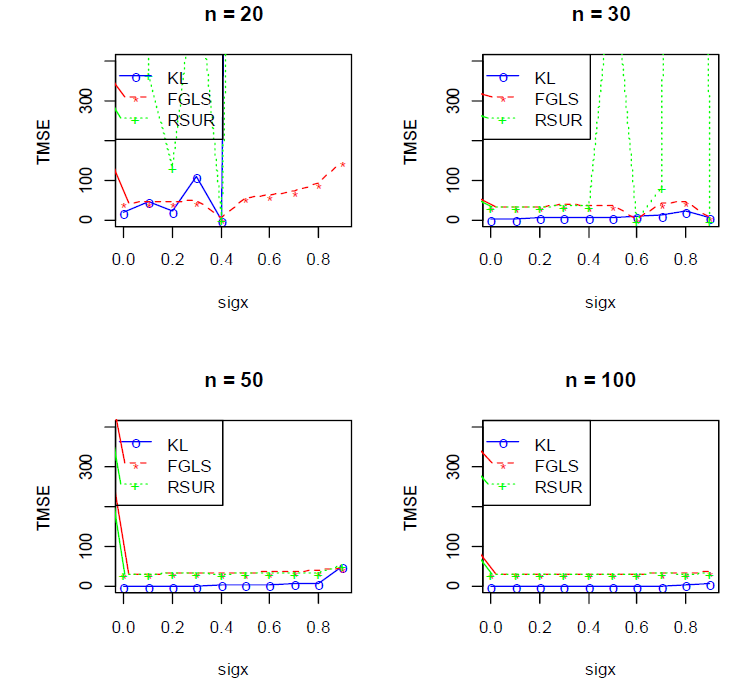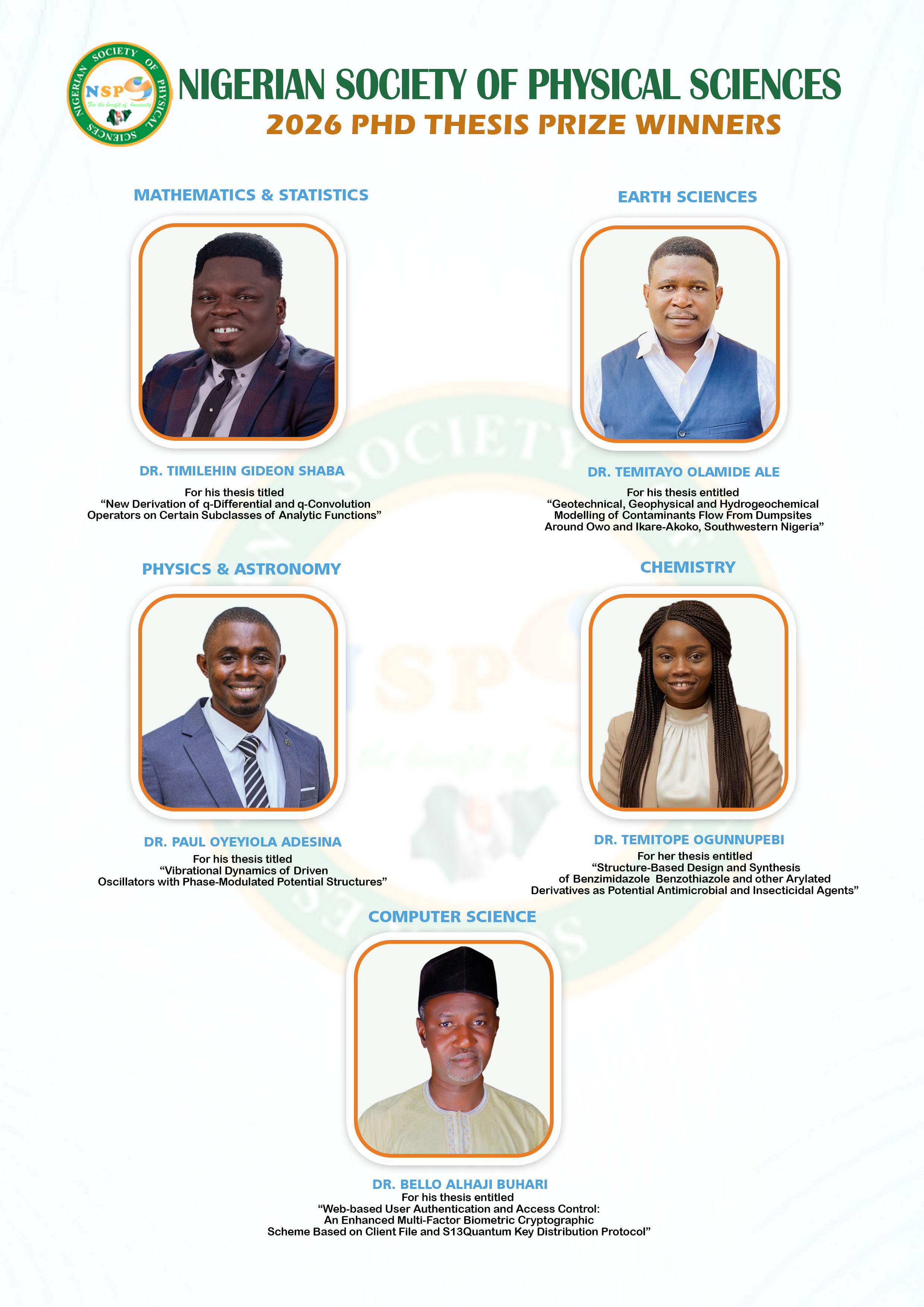The Efficiency of the K-L Estimator for the Seemingly Unrelated Regression Model: Simulation and Application
Keywords:
Multicollinearity, Ridge feasible generalized least squares estimator, Seemingly Unrelated Regression, Trace Mean Square Error, K-LSURAbstract
This paper considers the Ridge Feasible Generalized Least Squares Estimator (RFGLSE), Ridge Seemingly Unrelated Regression RSUR and proposes the Kibria-Lukman KLSUR estimator for the parameters of the Seemingly Unrelated Regression (SUR) model when the regressors of the models are collinear. A simulation study was conducted to compare the performance of the three different types of estimators for the SUR model. Different correlation levels (0.0, 0.1, 0.2, ..., 0.9) among the independent variables, sample sizes replicated 10000 times and contemporaneous error correlation (0.0, 0.1, 0.2, ..., 0.9) among the equations were assumed for the simulation study. The efficiency of the three (RFGLSE, RSUR, and KLSUR estimators for SUR, when the predictors are correlated, was investigated using the Trace Mean Square Error (TMSE). The results showed that the KLSUR estimator outperformed the other estimators except for a few cases when the sample size is small.

Published
How to Cite
Issue
Section
Copyright (c) 2023 Oluwayemisi Oyeronke Alaba, B. M. Golam Kibria

This work is licensed under a Creative Commons Attribution 4.0 International License.
How to Cite
Similar Articles
- O. G. Obadina, Adedayo Funmi Adedotuun, O. A. Odusanya, Ridge Estimation's Effectiveness for Multiple Linear Regression with Multicollinearity: An Investigation Using Monte-Carlo Simulations , Journal of the Nigerian Society of Physical Sciences: Volume 3, Issue 4, November 2021
- Samuel Olorunfemi Adams, Davies Abiodun Obaromi, Alumbugu Auta Irinews, Goodness of Fit Test of an Autocorrelated Time Series Cubic Smoothing Spline Model , Journal of the Nigerian Society of Physical Sciences: Volume 3, Issue 3, August 2021
- Christian N. Nwaeme, Adewale F. Lukman, Robust hybrid algorithms for regularization and variable selection in QSAR studies , Journal of the Nigerian Society of Physical Sciences: Volume 5, Issue 4, November 2023
- Segun L. Jegede, Adewale F. Lukman, Kayode Ayinde, Kehinde A. Odeniyi, Jackknife Kibria-Lukman M-Estimator: Simulation and Application , Journal of the Nigerian Society of Physical Sciences: Volume 4, Issue 2, May 2022
- Rauf I. Rauf, Ayinde Kayode, Bello A. Hamidu, Bodunwa O. Kikelomo, Alabi O. Olusegun, Enhanced methods for multicollinearity mitigation in stochastic frontier analysis estimation , Journal of the Nigerian Society of Physical Sciences: Volume 6, Issue 4, November 2024
- G. A. Shewa, F. I. Ugwuowo, Combating the Multicollinearity in Bell Regression Model: Simulation and Application , Journal of the Nigerian Society of Physical Sciences: Volume 4, Issue 3, August 2022
- Stephen Olushola Oladosu, Alfred Sunday Alademomi , James Bolarinwa Olaleye, Joseph Olalekan Olusina, Tosin Julius Salami, Evaluation of ANFIS Predictive Ability Using Computed Sediment from Gullies and Dam , Journal of the Nigerian Society of Physical Sciences: Volume 5, Issue 2, May 2023
- Timothy Kayode Samson, Francis Olatunbosun Aweda, Wind speed prediction in some major cities in Africa using Linear Regression and Random Forest algorithms , Journal of the Nigerian Society of Physical Sciences: Volume 6, Issue 4, November 2024
- Nour Hamad Abu Afouna, Majid Khan Majahar Ali, Optimizing precision farming: enhancing machine learning efficiency with robust regression techniques in high-dimensional data , Journal of the Nigerian Society of Physical Sciences: Volume 7, Issue 1, February 2025
- Kanak Saini, Monika Saini, Ashish Kumar, Dinesh Kumar Saini, Availability predictions of solar power plants using multiple regression and neural networks: an analytical study , Journal of the Nigerian Society of Physical Sciences: Volume 7, Issue 2, May 2025
You may also start an advanced similarity search for this article.






